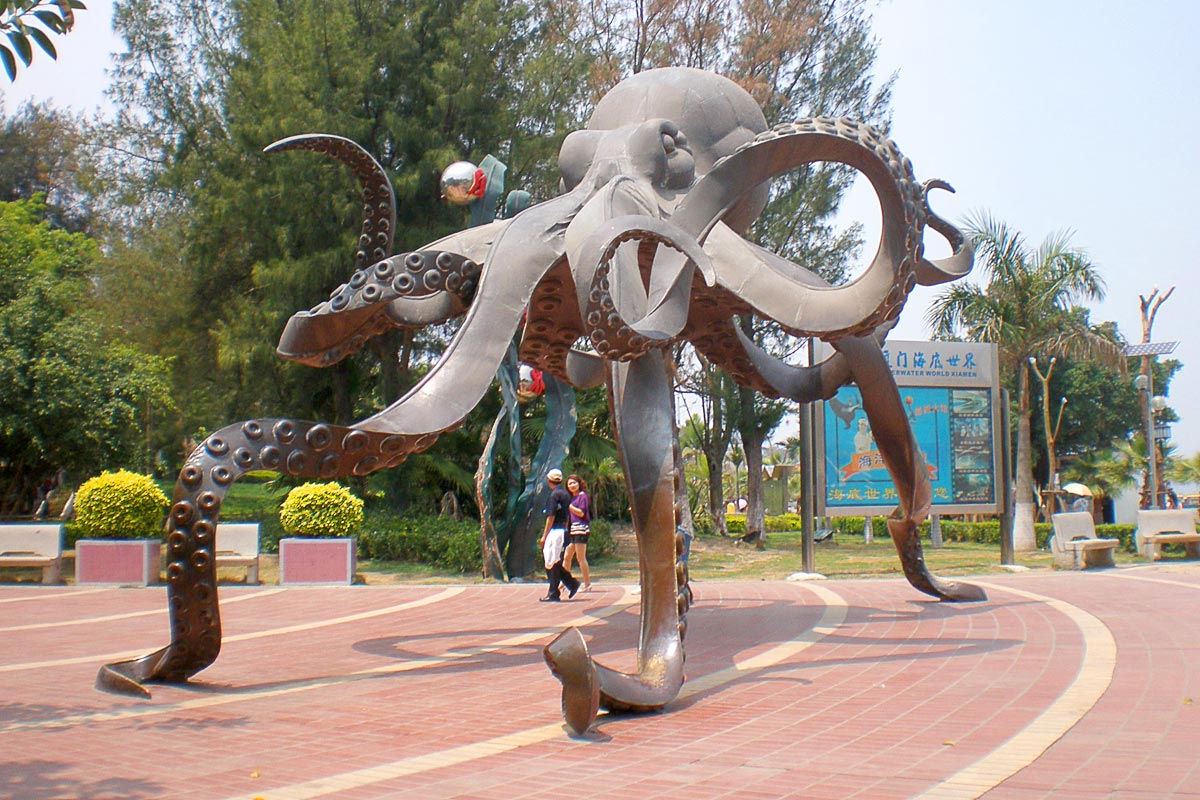
Miss Mary, won't you please come home from China?
Come home from China
—Cracker
Having been in China over a month in several different cities, Masayo and I thought we had a general handle on the country. But after six days on Gulangyu (鼓浪屿), a mysteriously un-Chinese island on the south coast, we realized that China is tougher to sum up than we thought.
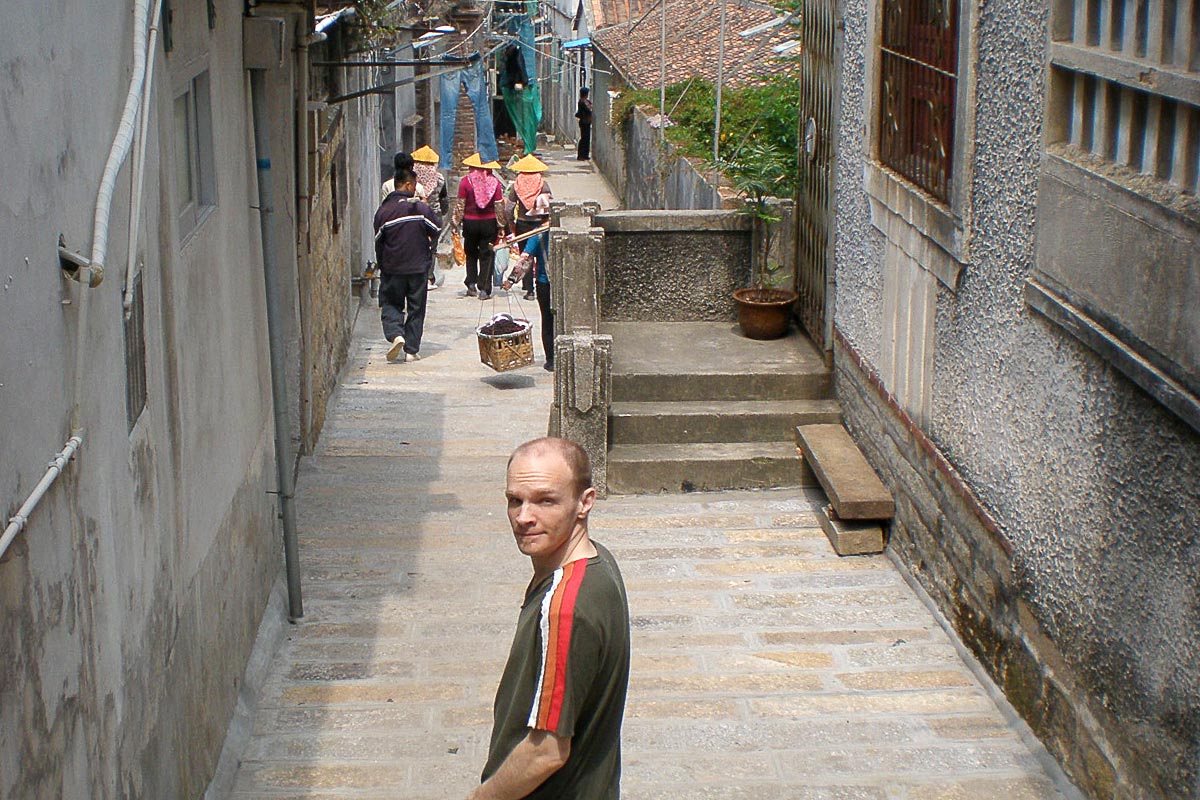
Gulangyu, which we arrived at on Day 40, is a short ferry ride across the water from the city of Xiamen and it would be hard to be any more different from the rest of China. Several peculiarities make Gulangyu the singular destination it is, including:
- Cars and bicycles are not allowed on the island.
- The winding, narrow streets are crammed with nineteenth-century European buildings, highlighting Gulangyu’s status as the only place in China with a foreign community at that time.
- A high percentage of the buildings on Gulangyu have pianos, which you can hear people playing as you stroll around in the afternoon.
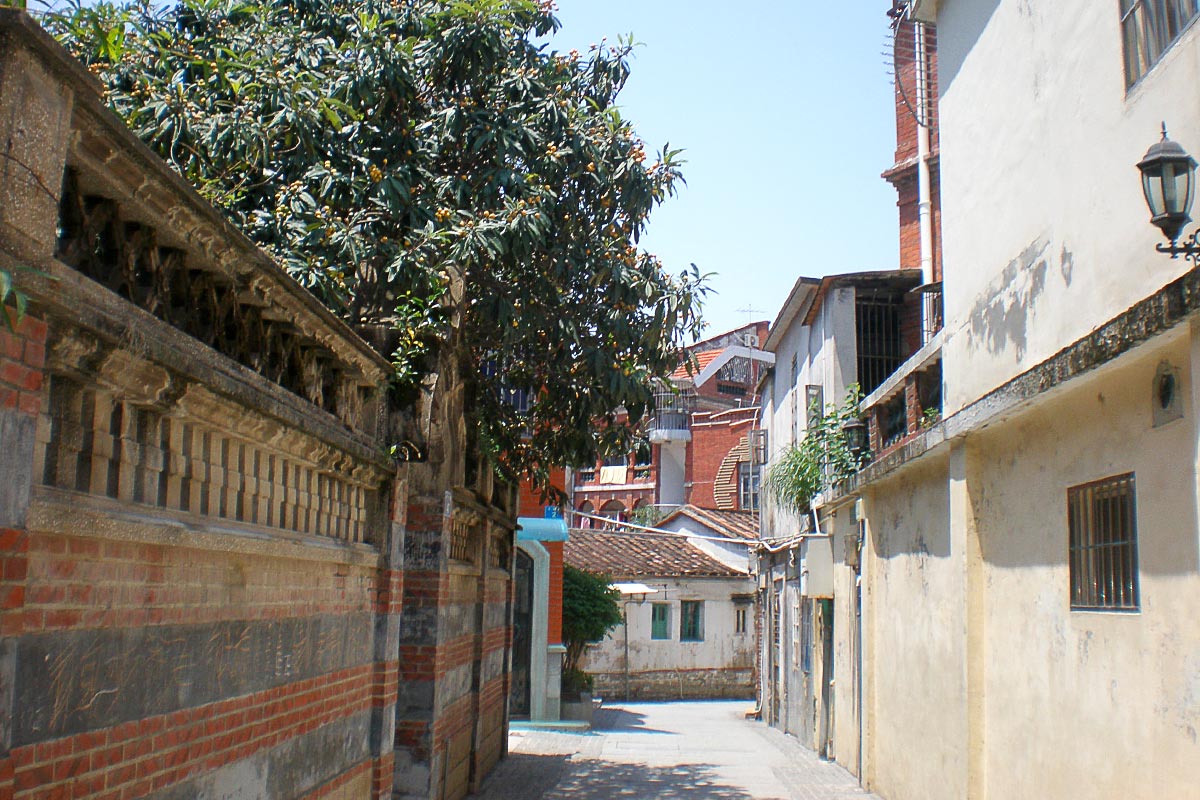
The small ferry port area has a few roads stretching out from it deeper into the island – once you pass under the gigantic octopus statue, that is. If you weren’t sure you were in for a unique experience yet, the octopus makes it a lot more clear.
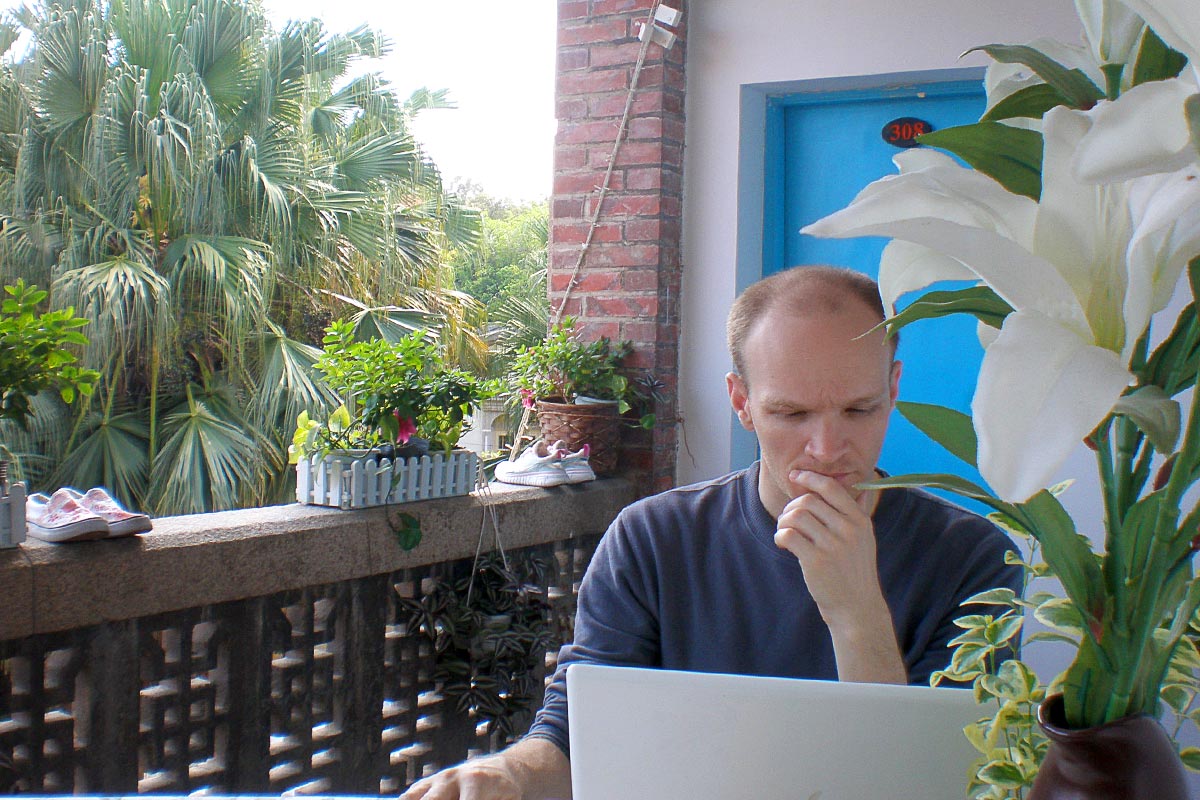 The further you get away from the ferry terminal, the sparser Gulangyu gets. There are restaurants, shops, cafés, and guesthouses that get gradually give way to private homes. We found a room at a place called Yoyo Inn, which is a rather stunningly beautiful (and affordable!) guesthouse a short walk from the busy section. Our room was quiet with a large patio on which we had reliable wi-fi.
The further you get away from the ferry terminal, the sparser Gulangyu gets. There are restaurants, shops, cafés, and guesthouses that get gradually give way to private homes. We found a room at a place called Yoyo Inn, which is a rather stunningly beautiful (and affordable!) guesthouse a short walk from the busy section. Our room was quiet with a large patio on which we had reliable wi-fi.
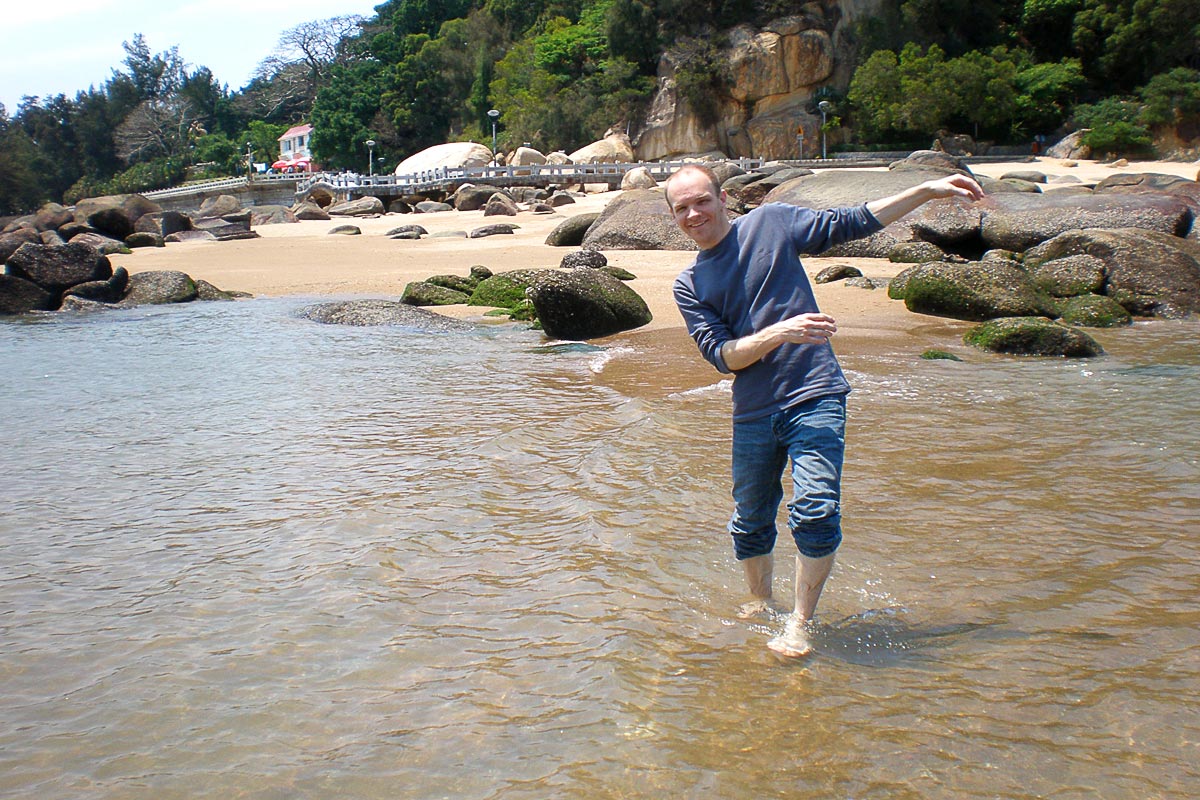
Our time in Gulangyu was a strange one: sucked in by the island’s timeless sense of unhurriedness, we spent our time walking around the endless little streets, up and down hills, dodging people pulling heavy-looking carts full of goods. (No cars, remember; transport is all human-powered.)
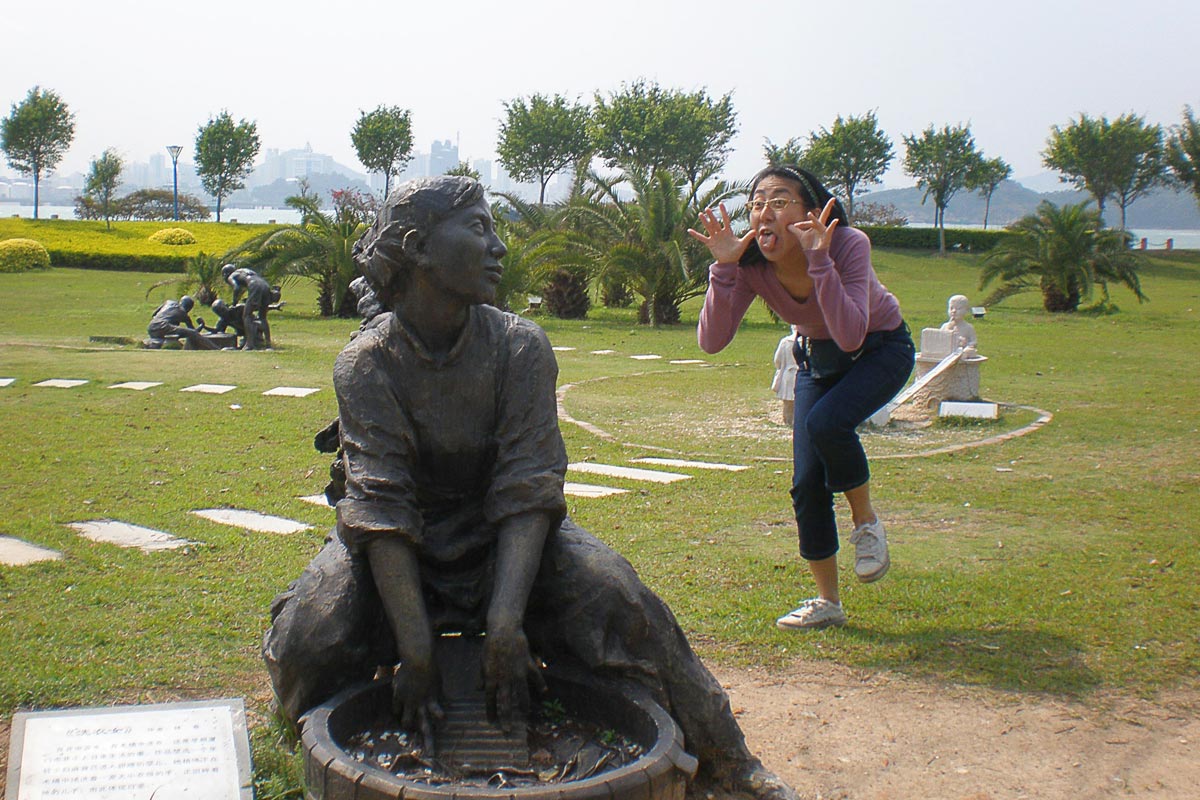
We did indeed hear piano music wafting from windows as we ambled up and down street after street under the shade of giant trees. The old European architecture really made Gulangyu surreal; it was only when we stopped at a fish-ball soup restaurant or grinned and gestured our way through an order with a Chinese waitress that we were reminded that this is in fact China.
Diabetes report – Low BG snacks and walking around Gulangyu
Since Gulangyu included a lot of walking around, it was important for me to always carry low blood sugar snacks. Unfortunately, most of the island had no quick and easy shops – only nearest the ferry terminal were there any reliable places to stock up on cookies, chocolate bars, and/or juice.
So I had to trudge down there from the guesthouse before setting out on a stroll. But it was all right – if I was lucky enough to be a little low when I got there, there was even cheap and freshly-squeezed juice to buy! Sunny Gulangyu truly seems to have it all.
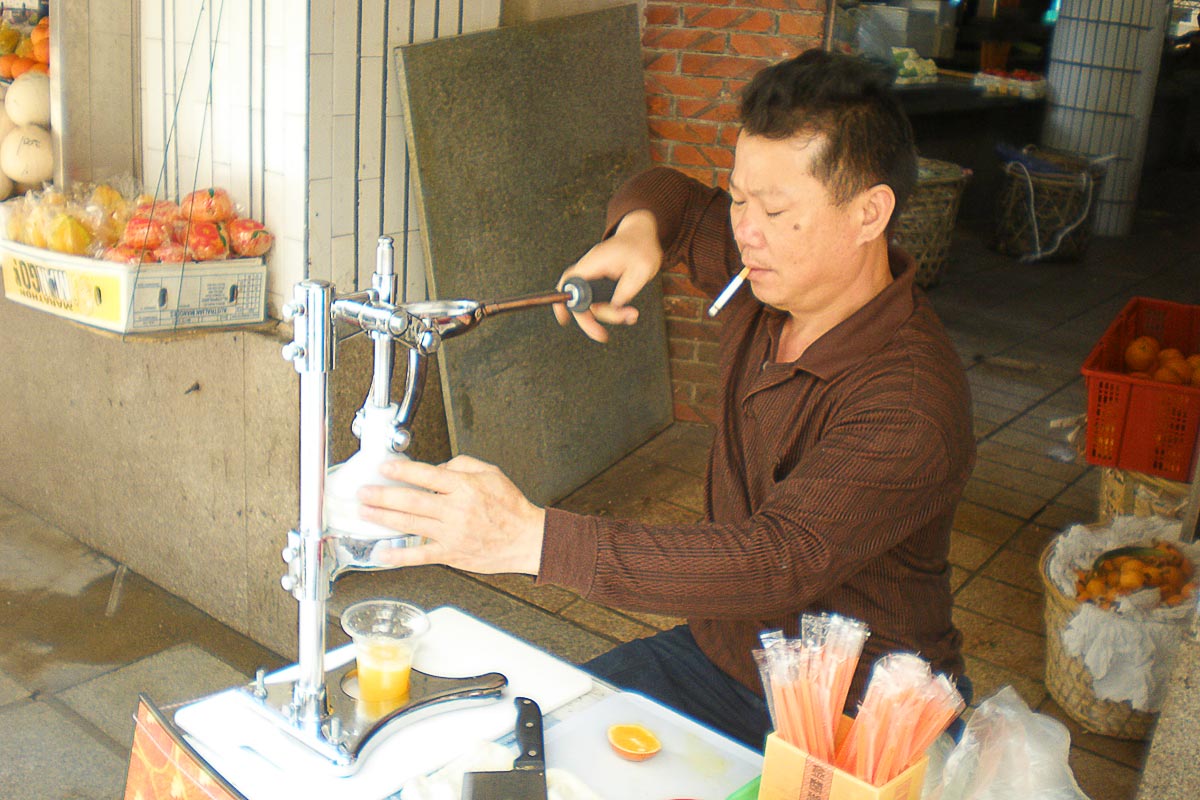
One evening we made it around to the far back part of the island where we found a seafood restaurant with blue pans full of live fish out front. We decided to try it for dinner, and we pointed at random to the beasts we wanted to eat. (They were labeled, but in Chinese, and that didn’t help me at all.)
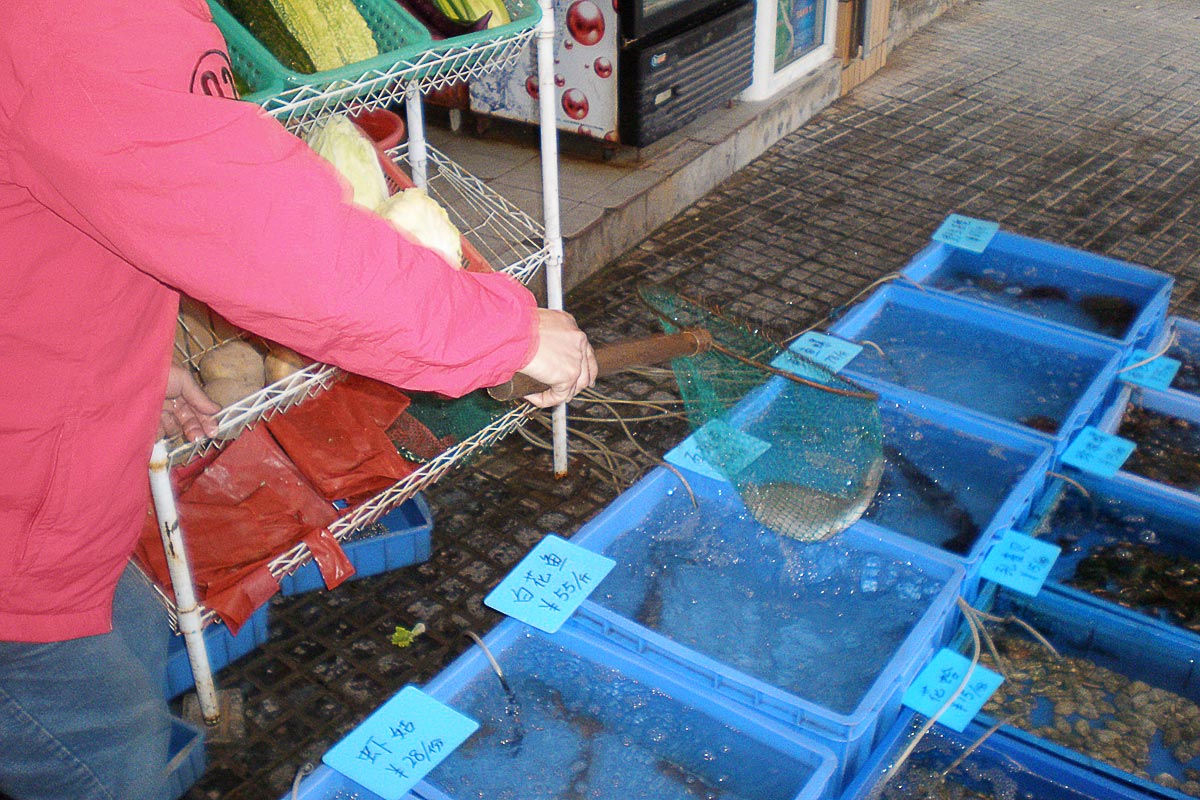
Soon enough, to the delight of Masayo and I and the several cats that hung around, the prepared fish was brought to us and was excellent, and served with vegetables and rice and tea. It felt like the world’s greatest meal on the very edge of China; we looked across the beach in front of the restaurant at hundreds of miles of open ocean.
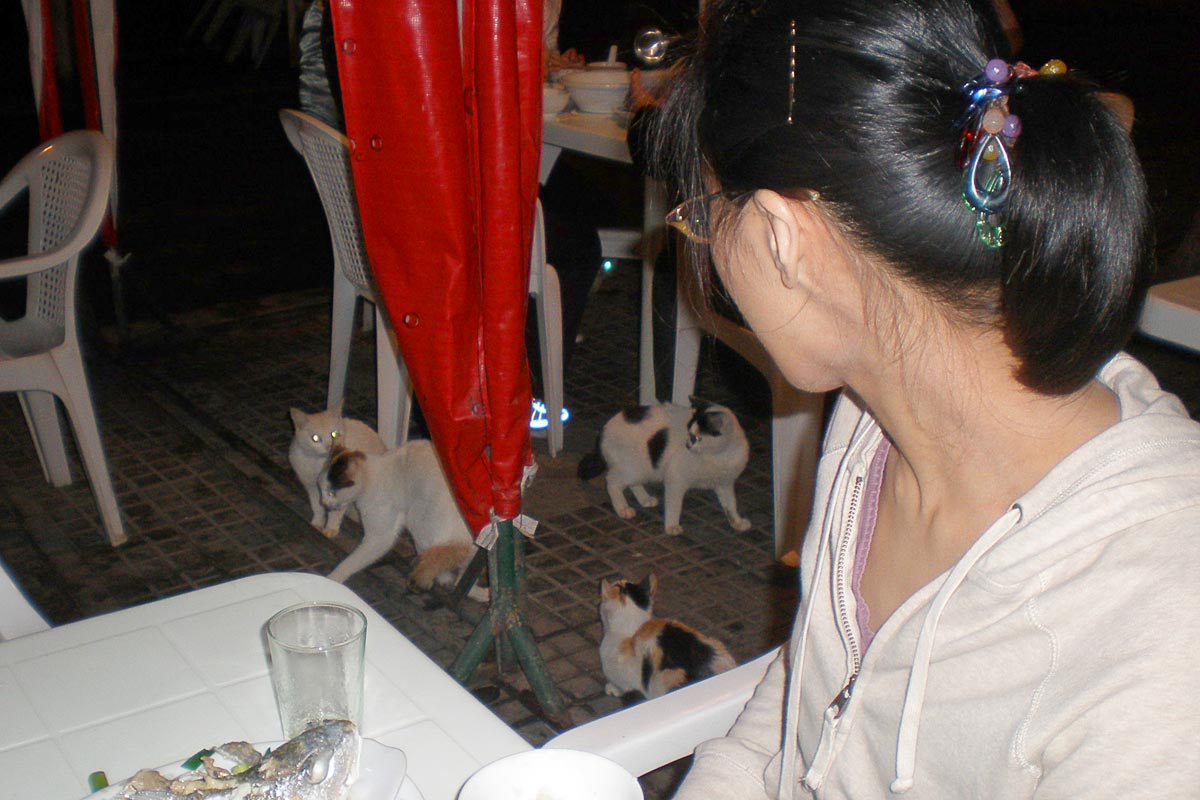
Masayo is a cat person, but even she doesn’t seem to trust these particular specimens.
One day in a café, the owner approached our table and asked if I could pose with a guitar with his two young waitresses. I do in fact play guitar, and though I had no idea why he wanted this, of course I agreed. The three of us lined up, the girls looking as unsure as I felt, but I gave it a big smile and he got his photos. I think they were for his website. But I don’t know why it involved me, holding a guitar.
I played a few chords for them but they weren’t impressed.
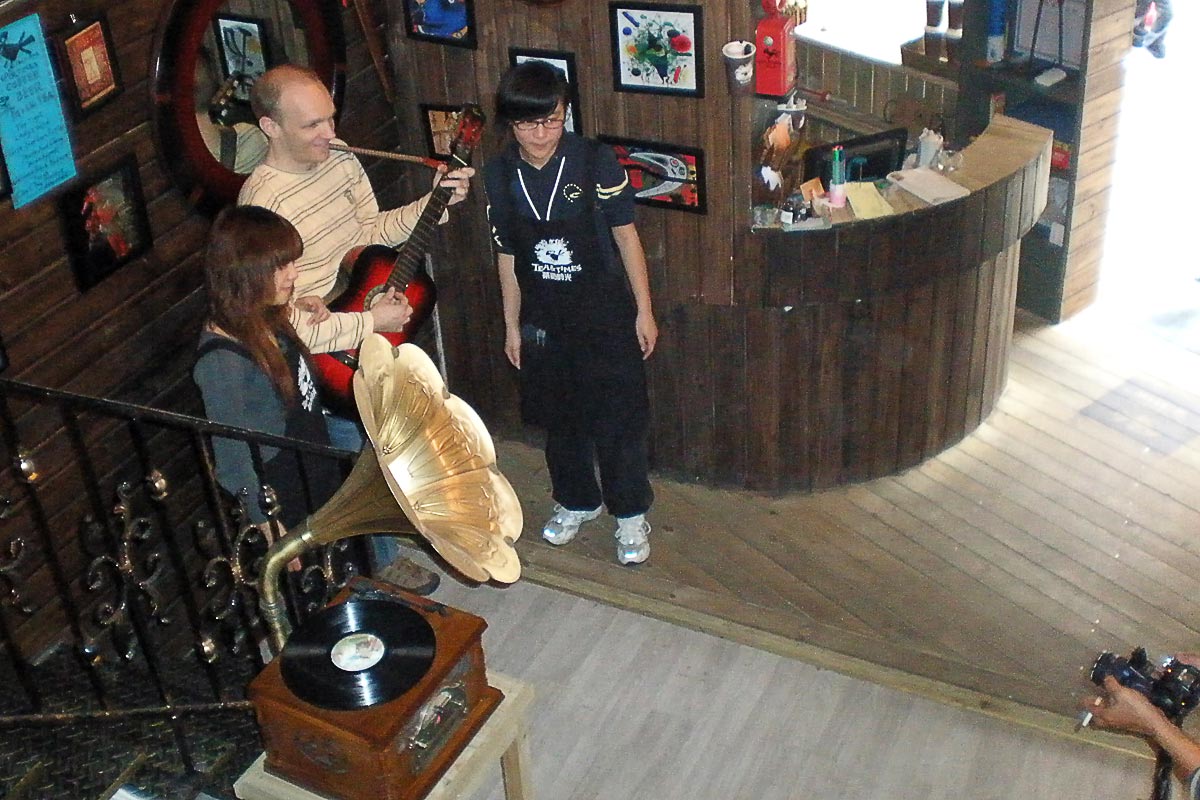 We planned on staying a couple days at the maximum on Gulangyu, just to get a taste of it. But the island is so odd, and so oddly soothing, that it was hard to make the decision to return to the mainland and busy, businesslike Xiamen. So we kept extending our stay at Yoyo Inn, thinking, “Yet another day of walking around to some of the parts of the island we haven’t seen yet!”
We planned on staying a couple days at the maximum on Gulangyu, just to get a taste of it. But the island is so odd, and so oddly soothing, that it was hard to make the decision to return to the mainland and busy, businesslike Xiamen. So we kept extending our stay at Yoyo Inn, thinking, “Yet another day of walking around to some of the parts of the island we haven’t seen yet!”
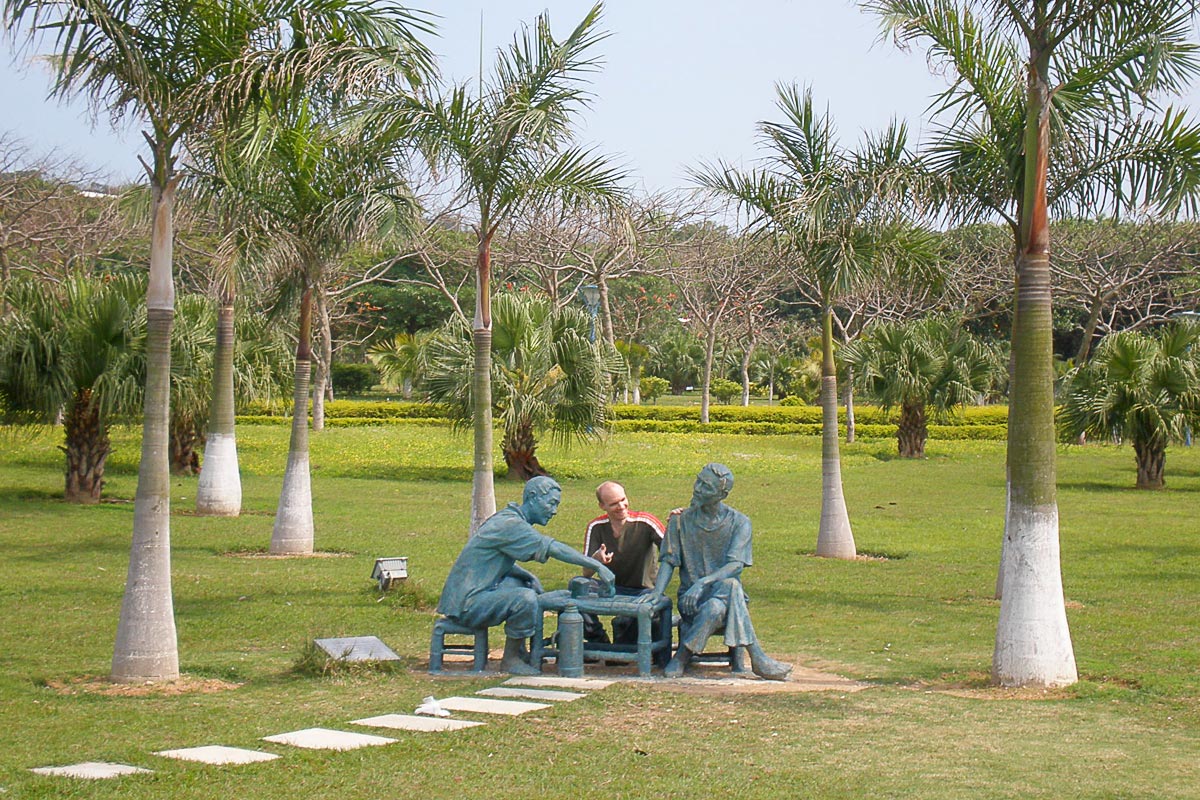
But China is a big country, and there is too much to see to stay still too long on a 90-day tourist visa. Reluctantly we checked out on Day 46 and took the ferry away from our little hidden corner of paradise and back to reality.
Goodbye, pianos. Goodbye, pedestrian-only streets. Goodbye, big beastly octopus. Gulangyu, you’ve changed my definition of what China is.
Thanks for reading. Suggested:
- Share:
- Read next: Day 47: Fujian tulou houses and the perfect kindness of strangers
- News: Newsletter (posted for free on Patreon every week)
- Support: Patreon (watch extended, ad-free videos and get other perks)

Support independent travel content
You can support my work via Patreon. Get early links to new videos, shout-outs in my videos, and other perks for as little as $1/month.
Your support helps me make more videos and bring you travels from interesting and lesser-known places. Join us! See details, perks, and support tiers at patreon.com/t1dwanderer. Thanks!
